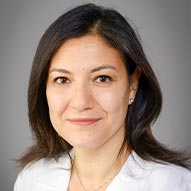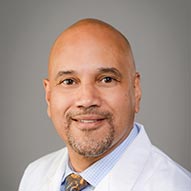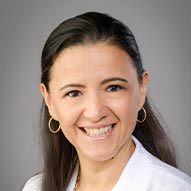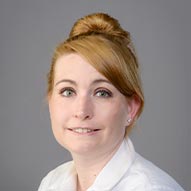Dallas
214-456-8000
Fax: 214-456-8005
Plano
469-497-2505
F: 469-497-2511
Park Cities
469-488-7000
Fax: 469-488-7001
Prosper
469-303-5000
Fax: 214-867-9511
At Children's Health℠, our comprehensive inpatient and outpatient feeding program helps kids experiencing failure to thrive or malnutrition and their families consume better nutrition to promote weight gain and growth.
Our team of experts is experienced in caring for kids whose failure to thrive or malnutrition is caused by medical conditions, oral motor and/or sensory aversions to food. We work one-on-one with families to personalize plans to expand the volume, variety and texture of foods and drinks their child will accept.
214-456-8000
Fax: 214-456-8005
469-497-2505
F: 469-497-2511
469-488-7000
Fax: 469-488-7001
469-303-5000
Fax: 214-867-9511
Failure to thrive happens when a child doesn’t get enough nutrients and calories to grow and gain weight in a healthy way. When this happens, babies and kids often experience low energy and don’t get the nourishment they need for their brains, muscles and bones to develop like they should. Failure to thrive is not a disease or disorder itself. It's a sign that a child is undernourished, and it can be fixed by providing the right diet.
Babies and children with failure to thrive are often smaller than their peers. Teenagers can be short-stature and experience delayed puberty. Failure to thrive puts kids at risk of developmental delays, like walking, talking and struggling to learn.
Your child’s doctor will start by doing a complete physical exam, and measuring your child's weight, height and head circumference. They’ll review your child’s medical history from your pediatrician’s well-child checkups to understand how they’re progressing compared to other children their age and sex.
Your child’s doctor may order some blood and urine tests to check for medical problems that may be affecting your child’s ability to gain weight and grow. We’ll also talk to you about your child’s eating routine, habits, likes and dislikes.
This information, along with a physical exam will help your doctor and dietitian ensure your child gets the nutrition they need.
The most common cause of failure to thrive is a primary medical condition that makes it difficult to eat or retain nutrition. Some of the medical conditions that cause failure to thrive include:
Other non-medical reasons a child may not be getting the right amount of nutrition at home include:
Our dietitians are experts in nutrition that promotes the growth and development of children. They can build a nutrition care plan that best meets each child’s needs.
We start by learning about your child’s medical and growth history, type and quantity of food and beverage intake including allergies, GI symptoms and intolerances as well as any barriers your child faces around eating. If feeding concerns are significant, we may consult with a pediatric psychologist, speech therapist, and/or occupational therapist to better assess your child’s challenges with eating.
Nutrition treatment plans may include things like:
The pediatric feeding team can help to:
It’s important to remember that weight gain takes time and it could take several weeks or months before your child meets their ideal weight.
At Children’s Health, our experts in gastroenterology as well as the pediatric feeding team work to increase nutrition to help your child grow and stay healthy. Together, we help your family build a nutrition plan that you can easily maintain at home.


























With proper nutrition management and frequent follow-up care with your dietitian and pediatrician, infants, babies and kids can catch up and maintain a healthy weight. By maintaining a healthy weight and gaining physical strength, babies with failure to thrive can also overcome developmental, behavioral, and emotional delays.
You should talk to your child’s pediatrician as soon as you notice any patterns or concerning behavior related to food.
Some children might need to stay in the hospital to be fed and watched around the clock for several days (or longer) until they gain weight. These children may need to have a feeding tube until they can eat on their own. Before leaving the hospital, we’ll create a transition plan to continue outpatient care and help prepare to build on progress at home.
The feeding team at Children’s Health slowly introduce new foods and beverages into your child’s diet. The speech therapist will determine what foods your child can chew or swallow. The occupational therapist will help to decrease your child’s sensitivities to textures of foods. The dietitian will help to balance your child’s diet and provide better nutrient intake. We use positive encouragement through toy and activities to make eating more comfortable and enjoyable.
As your child’s most important feeding partner, you will play an active part in offering food during therapy and practicing feeding strategies. We will give you tools to help you become more comfortable preparing meals and help your child become more comfortable eating at home.